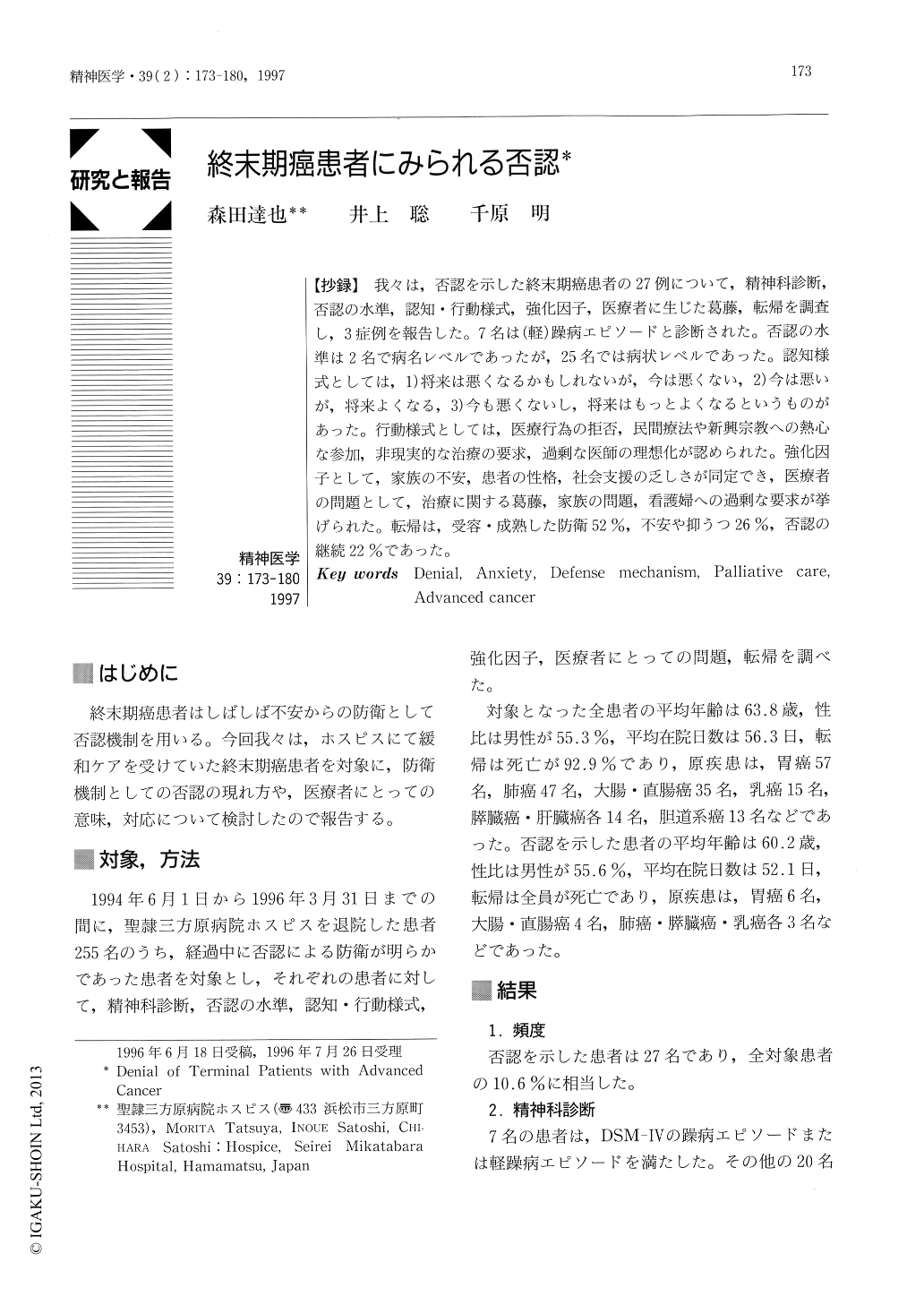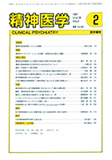Japanese
English
- 有料閲覧
- Abstract 文献概要
- 1ページ目 Look Inside
【抄録】我々は,否認を示した終末期癌患者の27例について,精神科診断,否認の水準,認知・行動様式,強化因子,医療者に生じた葛藤,転帰を調査し,3症例を報告した。7名は(軽)躁病エピソードと診断された。否認の水準は2名で病名レベルであったが,25名では病状レベルであった。認知様式としては,1)将来は悪くなるかもしれないが,今は悪くない,2)今は悪いが,将来よくなる,3)今も悪くないし,将来はもっとよくなるというものがあった。行動様式としては,医療行為の拒否,民間療法や新興宗教への熱心な参加,非現実的な治療の要求,過剰な医師の理想化が認められた。強化因子として,家族の不安,患者の性格,社会支援の乏しさが同定でき,医療者の問題として,治療に関する葛藤,家族の問題,看護婦への過剰な要求が挙げられた。転帰は,受容・成熟した防衛52%,不安や抑うつ26%,否認の継続22%であった。
We reviewed 27 denial patients with far advanced cancer receiving palliative care, and reported 3 cases. Seven patients showed manic or hypomanic episode (DSM-IV) as manic defense.In 25 cases, denial was developed against implications of the disease, not against the existence of the disease itself. Examples of behavior style influenced by denial were refusal of medical interventions, eager participation in alternative therapy or new religions, unrealistic requests to physicians, and inappropriate idealization of physicians. Contributing factors to the defense included the anxiety of their family members, the patients' character, and lack of social support. Problems for care givers were conflicts concerning medications, involvement in family discord, excessive requests to carers. Prognoses of denial were eventual acceptance or matured defense in 52%, anxiety or depression in 26%, and continuing denial in 22%. We discussed desirable palliative care for denial terminal cancer patients and stressed the importance of holding conferences to get better communication among staff members, and making efforts to cultivate awareness of these phenomena in advanced cancer patients.

Copyright © 1997, Igaku-Shoin Ltd. All rights reserved.


